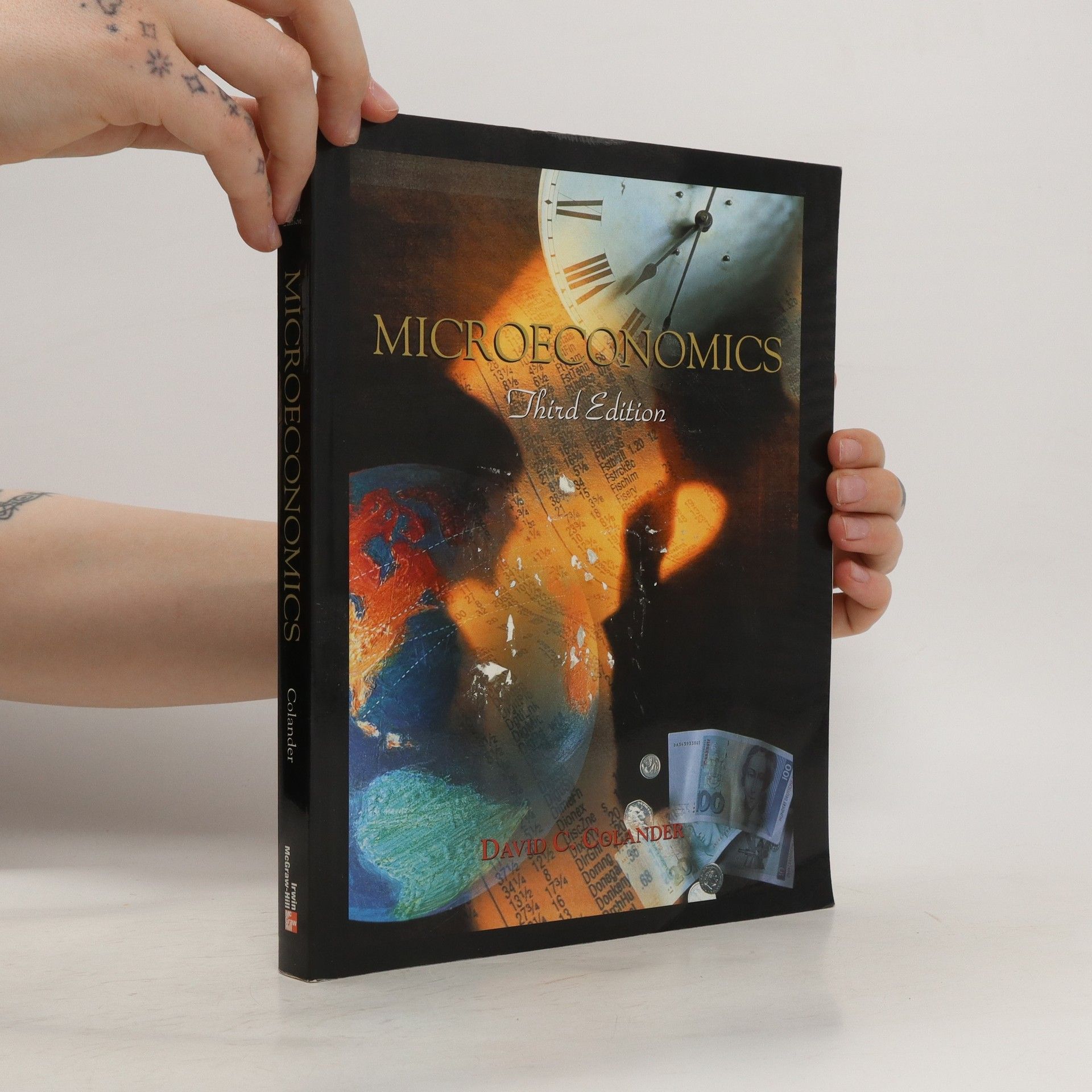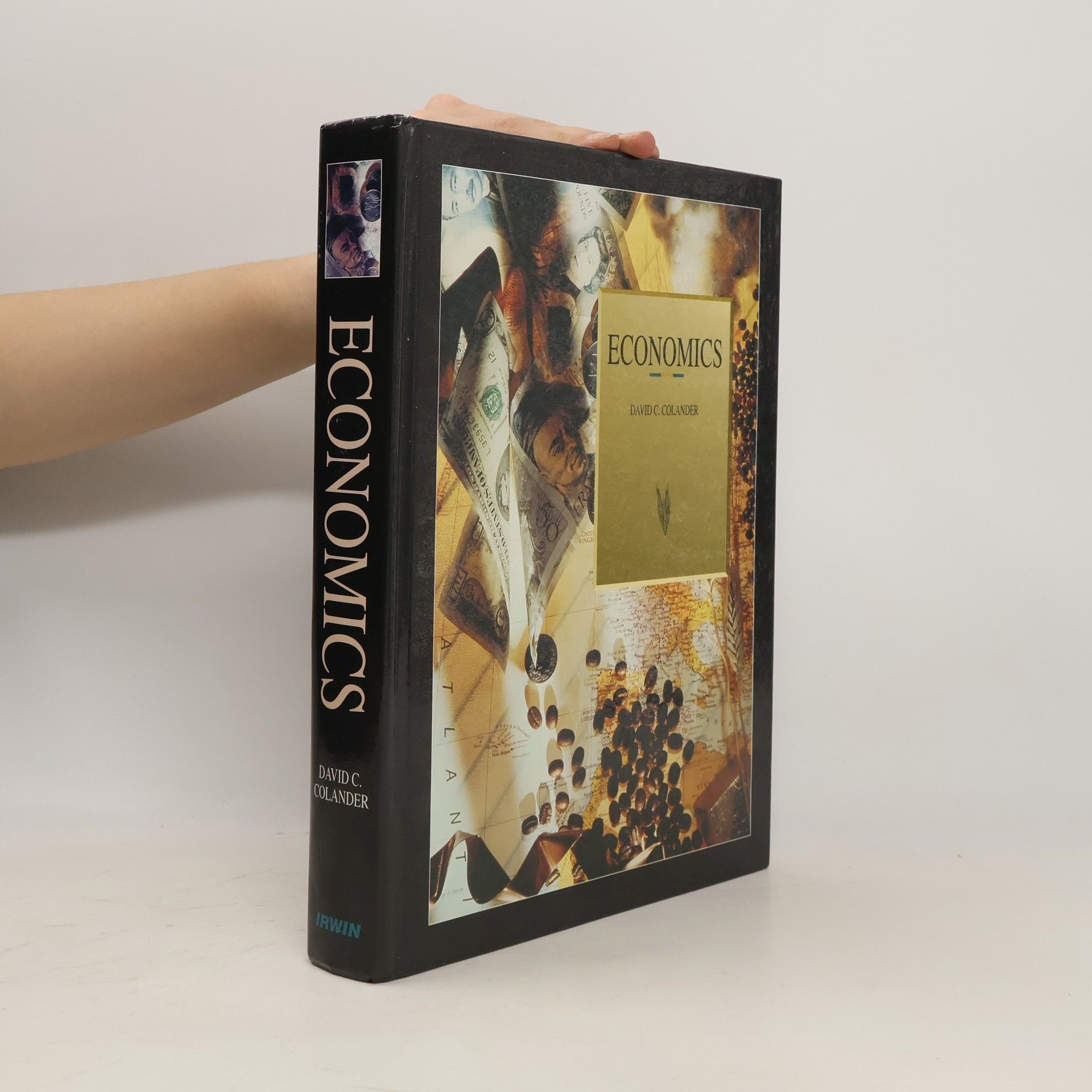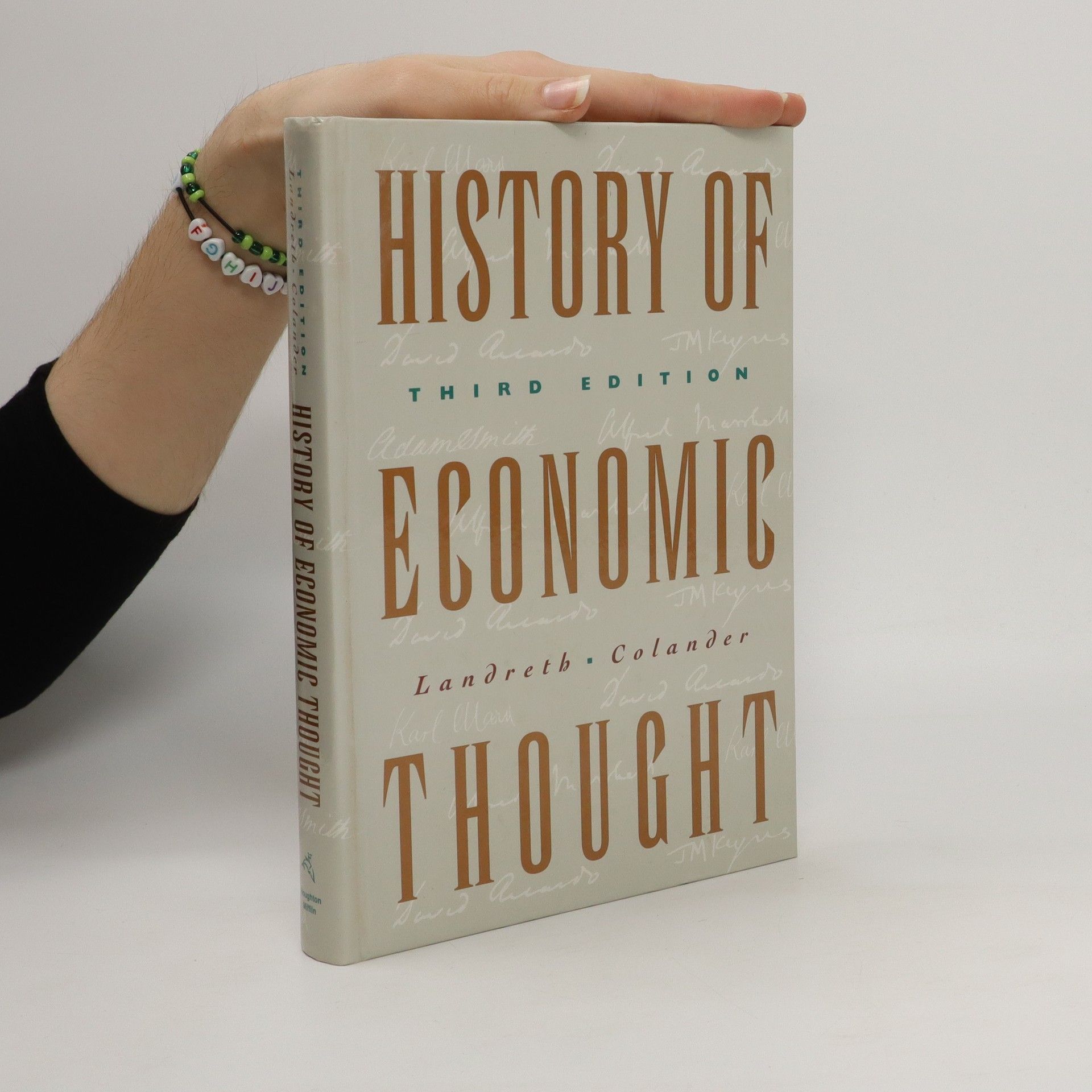Now in its eighteenth edition, "Social Science: An Introduction to the Study of Society" offers a common sense approach to social science, highlighting connections among disciplines like anthropology and economics. It emphasizes critical thinking and problem-solving, with updates on democracy, the Covid pandemic, the Trump-Biden transition, and global populism.
David C. Colander Ordre des livres (chronologique)
David C. Colander est un professeur éminent en économie. Son expertise se concentre sur la théorie économique et l'éducation. Son travail explore souvent des questions plus profondes concernant le fonctionnement et l'enseignement de l'économie.






The Making of an Economist, Redux
- 280pages
- 10 heures de lecture
Focusing on the experience of economics graduate school, David Colander's work provides an insightful and comprehensive look at the profession. As a significant follow-up to his previous book, it captures the evolution of economic education over the last two decades. Colander's analysis is poised to become the definitive account of the challenges and dynamics faced by aspiring economists, making it an essential read for students and professionals alike.
Macroeconomics
- 528pages
- 19 heures de lecture
/*0-13-030372-0, 3037B-7, Colander, David, Gamber, Edward, Macroeconomics*/" This fun-to-read book contains a policy-oriented, up-to-date approach to macroeconomics. Its humble approach recognizes the fact that economists do not have all the answers, and presents modern macroeconomics with a lively and entertaining writing style and a minimum of technical models." A four-part organization provides an introduction to intermediate macroeconomics, then covers growth and the long run, fluctuations and the short run, and institutional foundations of macroeconomic policy. "For policy macro economists.
An upper-level text, History of Economic Thought continues to offer a lively, accessible discussion of ideas that have shaped modern economics. The Fourth Edition has been thoroughly revised to reflect new scholarship and research, as well as a more pointed focus on modern economic thought. The text remains a highly understandable and opinionatedbut fairpresentation of the history of economic thought. The authors have reduced coverage of neoclassical economicsincluding long discussions of the labor theory of valueand added discussions of classical views of growth and dynamics. The Marshall chapter now appears before the Walras chapter to demonstrate the continuity between the development of partial equilibrium and neoclassical microeconomic thought from 1870 to 1890.
A real-world look at economics and its applications "Economics" is renowned for its conversational writing style, and for treating standard economic concepts as tools for making judgments as opposed to inflexible rules. This latest edition features updated international analysis along with more in-depth coverage of increasingly vital outsourcing issues than any other principles text. A new discussion of behavioral economics includes an examination of the work of Richard Thaler, the ultimatum game, and the status quo bias.
Microeconomics
Third Edition
An examination of microeconomic models in practical use Microeconomics explores the strengths and weaknesses of standard models of microeconomics and how they are actually used in policy. Chapters discuss the basics of microeconomics; foundations of supply and demand; market structure and policy; monopolistic competition; distribution of income; and the ways economic reasoning is applied to real-world policy. Sidebars reinforce the economic tools presented, while more then four hours of website-accessible video provide interactive exercises and animated tutorials.